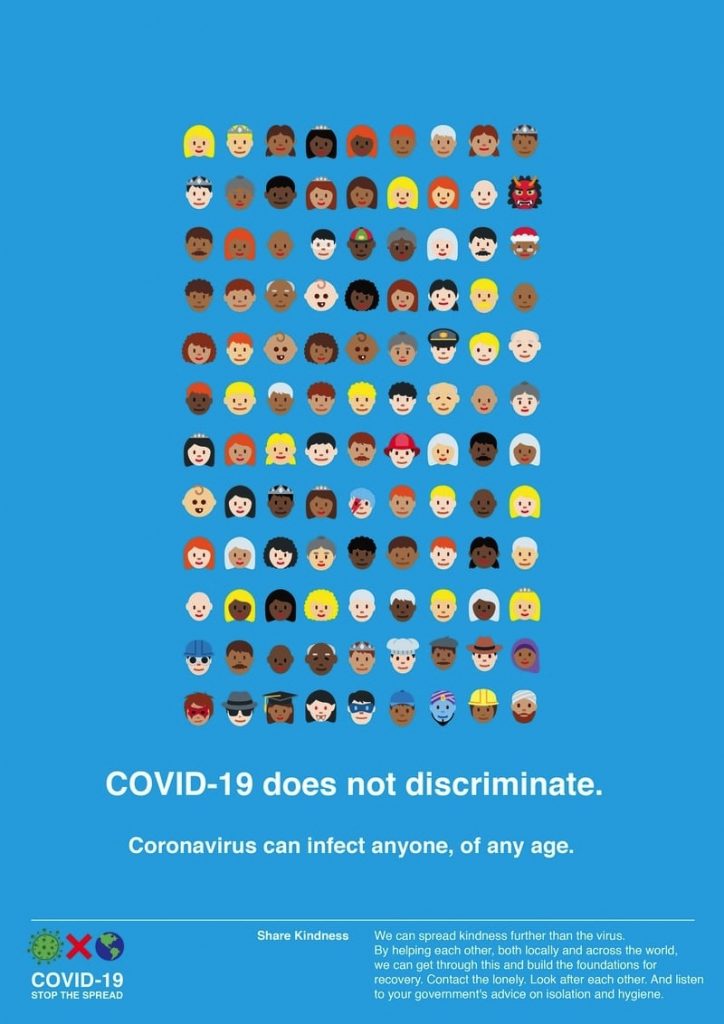Covid-19 and Translation Challenges
 Public service information about Covid-19 has flooded us with numerous pieces of advice, videos, brochures, and graphics, both on line and offline, most of it in English.
Public service information about Covid-19 has flooded us with numerous pieces of advice, videos, brochures, and graphics, both on line and offline, most of it in English.
Now more than ever before, we understand how important language is for health and how wide the language gap is if you’re on the English-speaking internet, and English is not your native language.
This information has to reach all the humans of the world if we hope to control the pandemic, and that means translating Covid documentation into as many languages as possible, in ways that are accurate and culturally appropriate. It also means organizing international conferences in all continents to connect health experts and medical teams to coordinate efforts in numerous languages.
From Googling their symptoms in the Marshall islands to downloading brochures from the net in Africa, over half of the world’s population has difficulties obtaining crucial information let alone getting a pamphlet from their doctor explaining their diagnosis, because it is not available in a language they can understand.
This health-language divide isn’t unique to Covid but also to many chronic illnesses.
This language gap prevents people from accessing information to help lift them out of poverty, get health care, recover from a crisis, or understand their rights.
It also contributes to a global communication power imbalance. Governments, humanitarian organizations, and other information gatekeepers typically do not engage in a global dialogue, they only share information from the top down. Sometimes they do not have the tools or the means to publish and distribute information in marginalized languages. And people who speak these languages are not able to proactively share their needs, concerns, or ideas.
In the past few weeks, translation efforts have expanded to hospitals for interpretation and advocacy to looping in translators on telemedicine phone calls with doctors and producing Covid podcasts in numerous languages to air on local radio—the most effective way of disseminating information at a distance in rural areas of other continents where internet service isn’t always available.
That’s just one of many Covid translation projects springing up all over the world from info sheets in Indian dialects to audio/video recordings in African languages. Even China, which has historically promoted Mandarin as the only national language, has been putting out Covid information in Hubei Mandarin, Mongolian, Yi, Korean, and more.
According to a regularly updated list maintained by the Endangered Languages Project, Covid information from reputable sources (such as governments, nonprofits, and volunteer groups that clearly cite the sources of their health advice) has been created in over 500 languages and counting, including over 400 videos in more than 150 languages.
Translators Without Borders are working to flip this power dynamic with Gamayun, the language equality initiative. Gamayun uses advanced language technology to increase language equality and improve two-way communication in marginalized languages. The ultimate goal is to shift control of communication, allowing everyone to share their voice and access information in the language and format they understand.
The initiative first focuses on gathering text and speech data that can make it easier to automate marginalized languages. Using this data, they can build advanced technology-driven solutions for both text- and voice-based communication. This cross-industry effort brings together technologists, native speaker communities, humanitarian organizations, content creators, and donors to fund investment in language data and technology, making it useful and accessible for all.
Some projects are shorter and include more standardized information in a larger variety of global languages, such as translating the five WHO guidelines into posters in more than 220 languages or translating the WHO’s mythbuster fact sheets into over 60 languages.
To learn more about Alpha Omega Translations services, contact us at info@alphaomegatranslations.com.
Category: Translation Services








